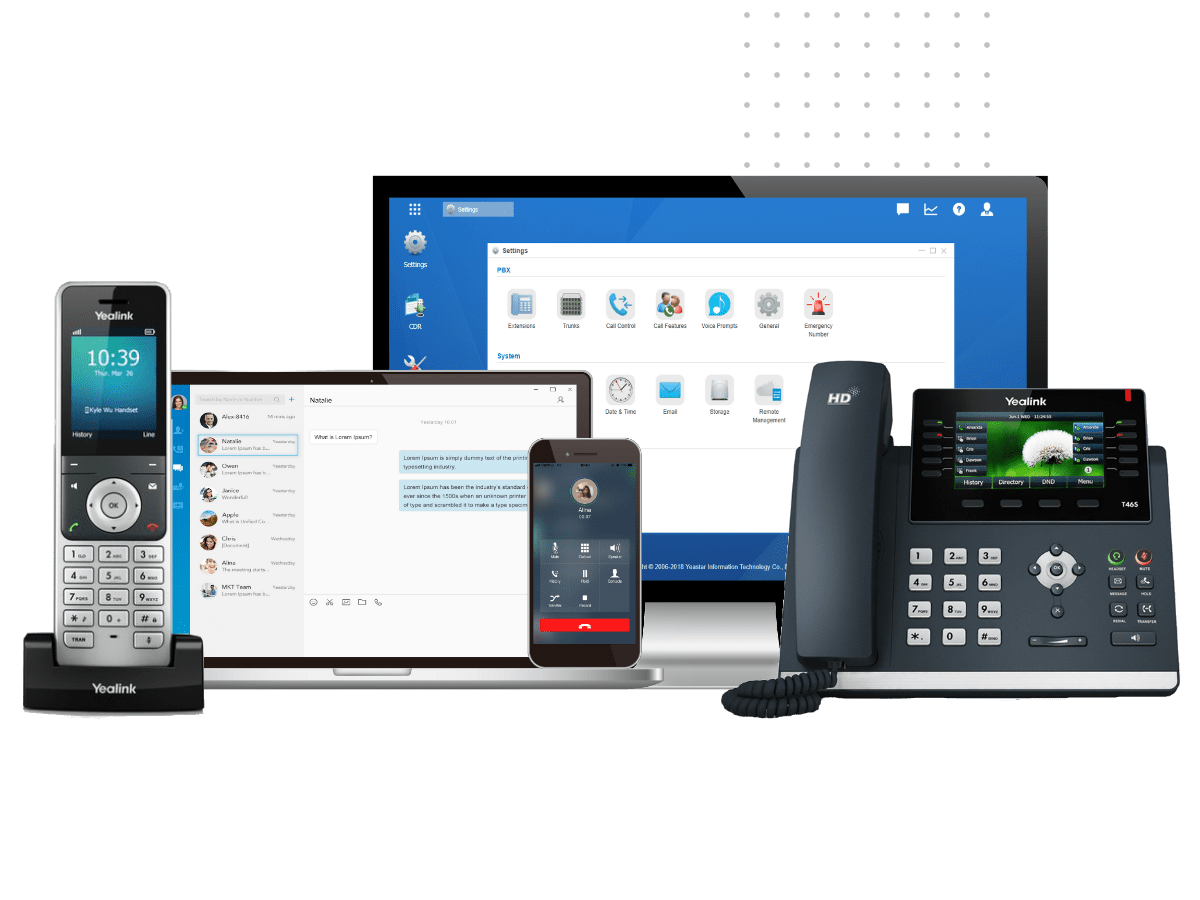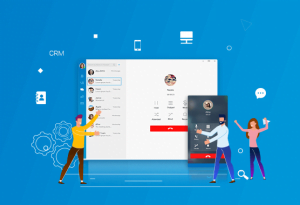

In today’s digital age, effective communication is essential for the success of any business. Traditional phone systems are becoming obsolete as modern businesses seek more flexible, cost-efficient, and scalable solutions. This is where Business VoIP (Voice over Internet Protocol) comes in—offering a revolutionary way to communicate through the internet, allowing businesses to streamline operations and improve collaboration.
This guide will explore the benefits of Business VoIP, key features, and why it’s an essential tool for modern businesses.
Business VoIP refers to the use of the internet to make and receive phone calls, as opposed to relying on traditional telephone lines. Unlike conventional landline systems, VoIP uses broadband connections to transmit voice data in digital packets, making it possible to integrate various communication channels like voice, video, and text into one unified platform.
One of the main reasons businesses opt for VoIP is the potential for significant cost savings. VoIP calls are generally cheaper than traditional phone services, especially for long-distance and international calls. By using VoIP, businesses can eliminate costly landline fees and reduce their monthly phone bills.
As your business grows, so do your communication needs. VoIP systems are highly scalable, allowing you to add new lines and features easily without the need for extensive infrastructure upgrades. This flexibility is especially valuable for growing businesses that need to adapt quickly to changing demands.
Business VoIP systems offer greater mobility than traditional systems. Employees can make and receive calls from their smartphones, tablets, laptops, or desktop phones, no matter where they are. This is particularly beneficial for businesses with remote teams, providing seamless communication across locations.
VoIP systems come with a host of advanced features that are not typically available with traditional phone systems. These may include call forwarding, voicemail-to-email, automated attendants, conference calling, call analytics, and integration with customer relationship management (CRM) tools. These features can enhance business operations and improve customer satisfaction.
VoIP systems can easily integrate with other business software tools, such as CRMs, email platforms, and collaboration tools. This creates a unified communication system where all aspects of your business can be linked together, leading to better efficiency and productivity.
Choosing the right Business VoIP solution involves considering several factors:
Assess your company’s current communication needs and consider future growth. Determine how many users will require access to the system, whether mobile integration is essential, and what additional features might be needed.
Ensure your existing internet infrastructure can support VoIP without compromising call quality. You may need to upgrade your internet speed or network hardware to optimize VoIP performance.
Look for a provider with a reputation for reliability, offering 24/7 support and strong service-level agreements (SLAs). Check reviews and customer testimonials before making a decision.
While VoIP systems are generally cheaper than traditional phone systems, prices can vary depending on the features, number of users, and your chosen provider. Ensure that you understand the pricing model—whether it’s subscription-based, pay-per-use, or a combination.
There are many Business VoIP providers to choose from. Some popular options include:
Before implementing a Business VoIP system, plan the rollout to ensure minimal disruption to your operations. This may involve migrating your existing phone numbers and ensuring that all necessary equipment is set up in advance.
Provide training to employees on how to use the new VoIP system effectively. This includes understanding how to make and receive calls, check voicemail, and utilize advanced features.
Once the system is up and running, regularly monitor its performance to identify any issues or areas for improvement. VoIP analytics tools can provide valuable insights into call quality and usage patterns.
VoIP uses the internet to make calls, while traditional phone systems rely on copper wiring or landline networks.
Yes, VoIP is particularly cost-effective for international calls, as it uses the internet to transmit data rather than expensive phone lines.
VoIP providers implement robust security protocols to ensure that communications are encrypted and protected from hackers.
Most VoIP providers support number portability, allowing you to keep your current phone number when switching to VoIP.
Adopting a Business VoIP solution is a smart move for businesses looking to streamline communication, reduce costs, and enhance flexibility. With its advanced features, scalability, and integration capabilities, VoIP is quickly becoming the go-to solution for modern enterprises.
Explore more about Business VoIP and discover how it can transform your business communication.





By now, you have probably heard about all the fantastic

Softphones bring a wealth of advantages to business communication, such

Please be informed that our office will be closed from

Please be informed that our office will be closed from
